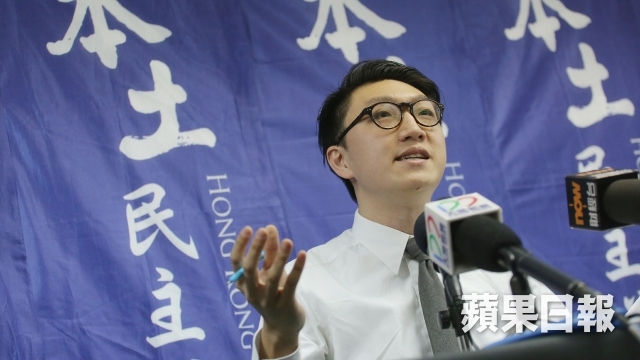During the 2012 legislative election, pan-democratic candidates received over 57% of the popular vote. Yet, due to internal strife and a lack of collective strategy, pan-democrats did not maximise their geographical constituency seats, taking only 18 of 35.
With the balance of the geographical constituency at stake in the New Territories East by-election, non-establishment supporters must ensure they do not make the same mistake. The consequences are dire. With the pro-establishment camp in control of the geographical constituency, they can raise motions to change the rules of the Legislative Council (LegCo) and make filibustering more difficult.

This would be shameful because the only legitimacy in LegCo is when pan-democrats – acting with the public mandate – defend Hong Kong by filibustering unpopular bills that are shoved down our throats with the government unwilling to listen to public concerns.
As long as functional constituency legislators are entrenched in the political system, the LegCo is designed to rubber stamp executive bills. The split voting system makes it near impossible for pan-democrats to successfully put forward any private bills, amendments, and motions. Article 74 of the Basic Law prevents individual legislators from raising bills that affect the political structure or public expenditure.
Given the constitutional limitations of our political system, a vote in the LegCo is reduced to two things: a demonstration of complete confidence in the executive government or a mandate to add viscosity to the legislative process. Governance in Hong Kong is executive-led, but procedures require every bill to be paraded through the LegCo. People who do not have complete confidence in the executive government cast a vote with the big issues in mind. They only hope there will be a group of non-establishment legislators serving as the last line of defence when a contentious or unpopular issue arrives in the LegCo.

Yet, Hong Kongers who are surely non-establishment voters are debating the nuances of localists and pan-democrats in the current by-election campaign. It is not the time to label yourself as a pan-democrat, localist, radical, or a moderate who prefers the middle ground. The priority is to prevent the very possible scenario of the DAB’s Holden Chow snatching the seat without a majority mandate.
The traditional pan-democratic parties have agreed to rally around Civic Party’s Alvin Yeung Ngok-kiu in the by-election. But Hong Kong Indigenous’ Edward Leung Tin-Kei is maintaining strong support and recently received an endorsement from TVMost’s Roy Tsui (“林日曦”). The upstart localist party Youngspiration decided not to contest the election, recognizing the importance of keeping the seat safe from the establishment. But now they are also endorsing Leung. They are cannibalizing each other’s votes while support is also siphoned off to the middle ground candidates.
Rallying around the one candidate that stands the highest chance of winning should not be taken as a challenge or disapproval of the localist way of doing politics. Realizing the bigger picture and recognizing the need to temporarily stand down is a great political skill, something that CY Leung clearly lacks.
Understandably, localists and youth activists want a seat in the council. In due course, they will obtain fair representation as part of the greater non-establishment front. But now is not the time, with the control of the geographical constituency hanging in the balance. They are best to be patient and wait for the general legislative elections later this year when the traditional parties must respect and welcome the strength of the new political forces, building a maximising strategy together.
